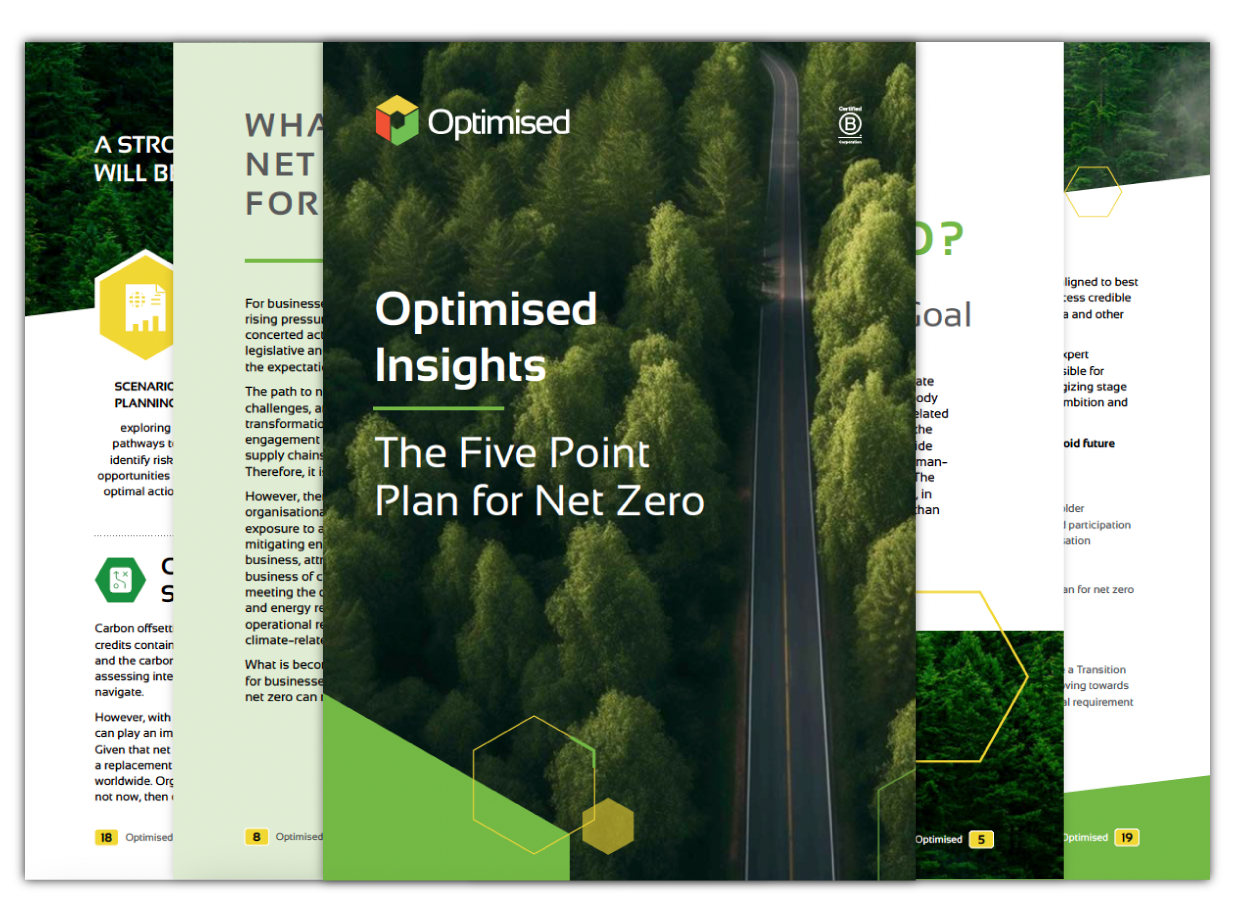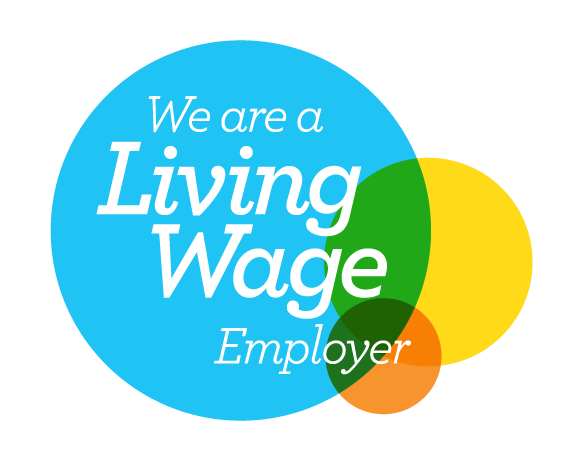Net Zero Beyond Compliance: what it means for six business leadership roles
Unlocking Business Value: How Net Zero Delivers Benefits Across Every Function
For many organisations, net zero has long been viewed through the lens of compliance and reporting. But with increasing pressure from regulators, investors, customers and employees, the focus is shifting from what businesses must do—to what they can gain by acting early and ambitiously.
Going beyond compliance to implement net zero strategies isn’t just good for the planet—it’s good for business. From operational efficiency to brand value, the benefits span every part of the organisation.
In this blog, we break down the case for net zero across six leadership roles and teams—and show how energy and sustainability managers can engage key stakeholders to turn strategy into action.
1. Net zero and the Energy Manager: unlocking efficiency, insight and impact
As the internal expert on energy performance, the Energy Manager is central to the net zero journey. But when energy teams work closely with sustainability and net zero leads, the benefits go far beyond compliance reporting. Decarbonisation strategies create new opportunities for efficiency gains, cost reduction and emissions savings—particularly through the integration of energy optimisation, renewables, and demand-side management. With better data visibility, cross-functional collaboration, and strategic investment in low-carbon tech, Energy Managers are empowered to shift from tactical problem-solving to long-term value creation. According to the Carbon Trust, businesses can typically cut 10–20% of their energy use through cost-effective measures—and smart collaboration helps identify and scale these opportunities.
Working as part of a cross-functional net zero team positions the Energy Manager as a key strategic contributor—maximising both impact and influence.
2. Net zero and the Finance Director: de-risking the bottom line
The financial case for net zero is no longer just about accessing green funding or meeting ESG requirements. Decarbonisation strategies can reduce exposure to volatile energy prices, future-proof the organisation against carbon taxes, and create long-term operational savings. According to CDP, companies with strong environmental performance enjoy up to an 18% lower cost of capital. Investment in energy efficiency, renewable technologies, and optimised asset performance can all deliver measurable ROI—making sustainability a financial strategy as much as an environmental one. McKinsey estimates that energy efficiency investments can yield internal rates of return (IRRs) of 10–20%, often with short payback periods. For the Finance Director, a robust net zero strategy is about improving resilience and unlocking long-term value.
3. Net zero and the HR Director: attracting and retaining top talent
Sustainability is a key differentiator in the battle for talent. Employees increasingly want to work for organisations that align with their values—and net zero commitments are high on the list. 83% of UK employees want to work for organisations that have a strong environmental and social conscience (IBM, 2023). A well-communicated, action-led decarbonisation strategy can enhance employer branding, boost employee engagement, and support retention. A purpose-led employer brand can reduce turnover by up to 50% and improve engagement (Deloitte, 2022). For the HR Director, a well-defined net zero pathway provides a powerful narrative to build a more purpose-driven workplace culture.
4. Net zero and the CEO: leading through purpose and performance
The CEO’s remit is both strategic and symbolic—setting the vision and embodying the values of the organisation. Embracing net zero as a core business priority enables CEOs to lead on both purpose and performance. It demonstrates long-term thinking, builds trust with stakeholders, and supports sustainable growth. A 2023 EY survey found that 78% of investors now include ESG factors in their decision-making and purpose-driven companies grow three times faster than their competitors (Harvard Business Review). From securing investor confidence to navigating regulatory change, net zero leadership positions the CEO as a catalyst for innovation and competitive advantage.
5. Net zero and the COO: driving operational excellenCE
The CEO’s remit is both strategic and symbolic—setting the vision and embodying the values of the organisation. Embracing net zero as a core business priority enables CEOs to lead on both purpose and performance. It demonstrates long-term thinking, builds trust with stakeholders, and supports sustainable growth. A 2023 EY survey found that 78% of investors now include ESG factors in their decision-making and purpose-driven companies grow three times faster than their competitors (Harvard Business Review). From securing investor confidence to navigating regulatory change, net zero leadership positions the CEO as a catalyst for innovation and competitive advantage. Operational efficiency and net zero go hand in hand. The IEA reports that industry accounts for 38% of global energy use—making operational decarbonisation a major lever for impact.
For the Chief Operating Officer, decarbonisation strategies can streamline processes, reduce waste, and enhance system performance. Smart building technologies can reduce energy use by up to 30%, while predictive maintenance can cut downtime and extend asset life. Whether through smarter energy management, improved data visibility, or supply chain decarbonisation, net zero delivers opportunities to optimise across the board. The result? A leaner, greener operation that’s fit for the future.
6. Net zero and the commercial team: meeting market demand
Sustainability is now a key decision factor for customers and clients. From procurement requirements to brand perception, commercial teams are under pressure to prove their environmental credentials. 70% of B2B buyers consider a supplier’s sustainability performance in purchasing decisions (Capgemini, 2023). Demonstrating real progress on net zero—beyond box-ticking—can open doors to new markets, strengthen bids, and create differentiation. For the commercial team, net zero is a growth opportunity as well as a reputational one.
For energy and sustainability managers, making the business case for net zero has never been more important. Beyond compliance, reporting and risk management, decarbonisation offers strategic value across the entire organisation. But to unlock these benefits, action—not just ambition—is required.
Optimised Insights: The Five Point Plan for Net Zero
How to lead your organisation through a five-stage decarbonisation journey
In a world of rising regulation, investor pressure and climate risk, organisations can no longer afford to delay on decarbonisation. But the path to net zero is complex — and every business’s journey is unique.
That’s why we’ve created The Five Point Plan for Net Zero, part of our Optimised Insights series. This free guide outlines our five-stage framework to help your business move from carbon ambition to confident action.

Article by Carla Wilson
Head of Consulting, Net Zero
Our vision to optimise the world’s transition to net zero and beyond is only possible if we achieve carbon savings and return on investment for our clients. Carla’s consulting team is responsible for initiating this journey for our clients through net zero advisory, reporting and energy transition services.
BOOK YOUR 30-MINUTE ENERGY MANAGEMENT CONSULTATION
Fill in your details below to arrange a complimentary consultation with one of our experts. They will give you bespoke advice to help your business achieve all its energy needs, reducing cost, consumption and carbon.











